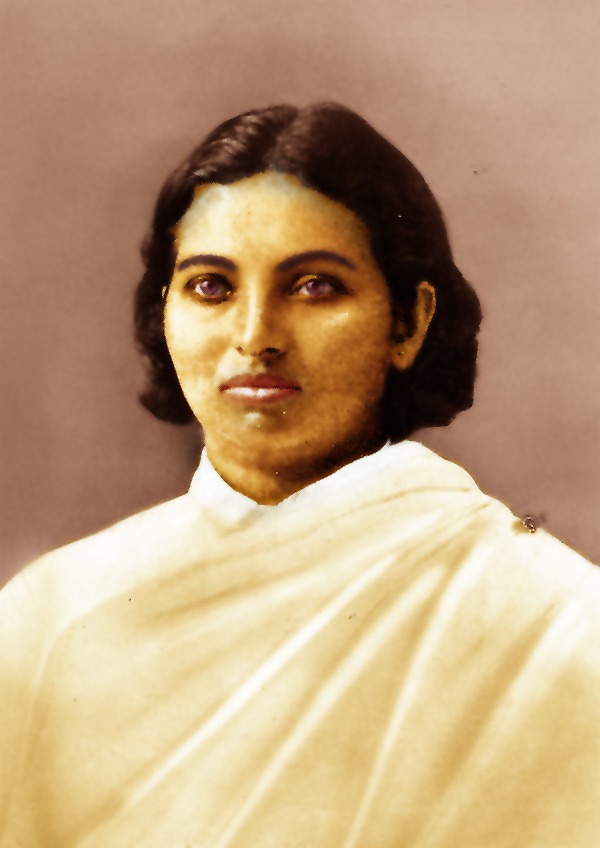
Today’s Leader of Faith
PANDITA RAMABAI SARASWATI
Home Call : 05 April 1922
Indian Missionary, Prayer Warrior, Founder of Mukthi Mission, Scholar, Social Reformer, Activist, Script Translator
Pandita Ramabai Sarasvati (1858 – 1922) was an Indian first woman missionary and social reformer. After her husband’s death in 1883, she went to England for medical education, where she was inspired by an Anglican sister’s kindness and service and embraced Christianity. She later travelled extensively in the United States, raising funds for destitute Indian women. With these funds, she established Sharada Sadan for child widows. In the late 1890s, she founded Mukti Mission, a Christian charity in Kedgaon, near Pune, which was later renamed Pandita Ramabai Mukti Mission. The motto of the Mukti Mission is “Rescue, Redeem, and Restore.” It reflects the mission’s dedication to rescuing destitute women and children, redeeming them through faith and education, and restoring their dignity and independence. Mukti Mission is like a heavenly abode—a great ashram that provides a safe haven, spiritual guidance, and service opportunities for orphans, destitute women, and underprivileged girls. More than just an ashram, it is a centre of spiritual revival that has transformed countless lives. Mukti Mission has elevated the status of women in society, granting them dignity and self-respect. All their needs are met within the ashram, with various cottage industries in place. This means that everything they wear and consume is produced by them, making it akin to a large village, where, in fact, it is the outsiders who rely on them. The Lord has appointed her for this noble service. Today, Mukti Mission continues to stand as a beacon of hope, spreading light of love, faith, and devotion to many. Despite facing criticism from the deeply rooted traditional Hindu society, she remained steadfast in her faith, relying solely on the Lord as she walked in His path. Her life of love, service, and prayer, along with the spiritual awakening that took place in 1905, attracted the attention of Christian missionaries worldwide. The news that the “Holy Fire” had ignited at Mukti Mission spread globally. Missionaries saw this as a symbol of spiritual revival and were drawn to it. As part of their prayer ministry in the country, many missionaries carrying the special burden given by the Lord conducted prolonged prayer sessions, including two weeks of prayer in 1905, nineteen days of prayer by Bro. Bakht Singh in May 1938, and all-night prayers held by other missionaries. As a result, revival and the future ministry expanded not only within Mukti Mission but also across the entire nation. The Lord’s ministry continues there daily. During her time, she actively preached the Gospel alongside many missionaries and pastors. Through Mukti Mission, millions were freed from the bondage of slavery and found true salvation. Her tireless efforts for the upliftment of women and Christian missionary service continue to inspire generations.
Ramabai was born into an orthodox, devout Brahmin family on April 23, 1858, to Anant Shastri and Lakshmibai. A highly intelligent girl, she mastered Sanskrit and studied all Hindu scriptures. Orphaned at the age of sixteen, she travelled across India with her brother during a time of famine, reading scriptures and learning various languages. During this period, she witnessed the dire conditions of widows and orphaned children. During her visits to Christian mission schools and orphanages, she was deeply moved by the care and compassion Christians showed toward orphans and women. Witnessing these conditions stirred her heart, inspiring her desire to reform society. A brilliant student, she earned the titles of Pandita and Saraswati from Calcutta University in 1878. Influenced by Christianity and new ideas, she began to question her own beliefs. She married Bipin Bihari Medhvi, a Bengali lawyer, in an inter-caste union. However, in 1882, he passed away from cholera, leaving her widowed at the age of 23. Later, she moved to Pune and founded the Arya Mahila Samaj to promote women’s education and oppose child marriage.
Ramabai testified before the Hunter Commission in 1882, criticizing opposition to female education and advocating for women’s medical training. Her speech influenced the Women’s Medical Movement in India. She travelled to Britain in 1883 for medical training but was rejected due to deafness. During her stay, she converted to Christianity. In 1886, she visited the U.S., lecturing and publishing The High-Caste Hindu Woman, which exposed the oppression of Hindu women and helped raise funds for a school for child widows. When she returned to India in 1889, she was invited to the Indian National Congress session. She was one of the ten women representatives at the gathering. In the same year, she founded Sharada Sadan in Pune but moved it to Kedgaon as Mukti Mission after losing Hindu reformist support due to student conversions. During the 1896 famine, she rescued thousands of destitute women and children. By 1900, Mukti Mission housed 1,500 residents. She also translated the Bible into Marathi.
Ramabai remained independent, raising and educating her daughter, Manorama Bai, who later worked alongside her. Manorama became Principal of Sharada Sadan and helped establish a Christian High School in Gulbarga. In 1920, Ramabai appointed Manorama as her successor at Mukti Mission, but Manorama died in 1921. Devastated, Ramabai passed away nine months later at the age of 63. Even today, the institutions and services she founded continue to operate without interruption, keeping Ramabai’s legacy alive and vibrant.
